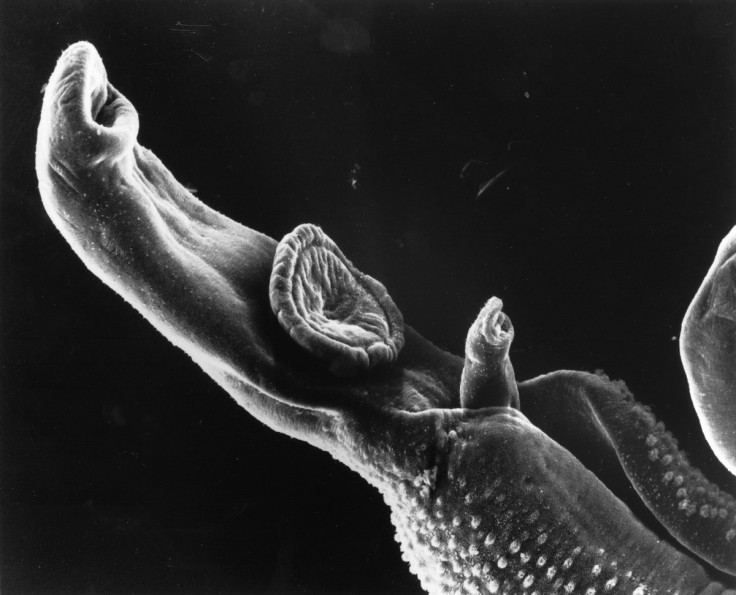Ancient Parasite Egg That Lived in Human Bladders Discovered in Prehistoric Syrian Town

An ancient parasite egg that lived inside human bladders and intestines has been discovered in a grave in a prehistoric town in Syria.
The 6,200-year-old Schistosomiasis parasite egg was found near the Euphrates river and is believed to be the first evidence that agriculture irrigation in the Middle East led to disease.
Published in The Lancet Infectious Diseases, researchers from the University of Cambridge say schistosomiasis is a disease caused by a number of different species of flatworm that live in the blood vessels of the bladder and intestines. The disease can cause anaemia, kidney failure and bladder cancer.
The egg was found in the pelvic area of the remains, where the bladder and intestines would have been in life. Soil samples from the head and the foot areas did not contain the parasite, suggesting the grave had not been infested after burial.
Piers Mitchell, one of the authors of the study, said they believe the parasite arose after the first crop irrigation systems were introduced in ancient Mesopotamia, an area that once covered parts of Iraq, Iran, Kuwait, Syria and Turkey.
"The individual who contracted the parasite might have done so through the use of irrigation systems that were starting to be introduced in Mesopotamia around 7,500 years ago.
"The parasite spends part of its life cycle in snails that live in warm fresh water, before leaving the snail to burrow through the skin of people wading or swimming in the water. These irrigation systems distributed water to crops and may have triggered the beginning of the enormous disease burden that schistosomiasis has caused over the past 6,000 years."
Before the grave discovery in Syria, the earliest schistosomiasis egg discovered was found in Egyptian mummies dating from 5,200 years ago.
"Schistosomiasis has become progressively more common over time so that it causes a huge burden across the world today, with over 200 million people infected," Mitchell said.
"It causes anaemia which significantly decreases physical productivity in infected people, and may also cause bladder cancer. We would expect these consequences in ancient peoples to have had a significant impact upon early civilisations in the region."
© Copyright IBTimes 2025. All rights reserved.






















